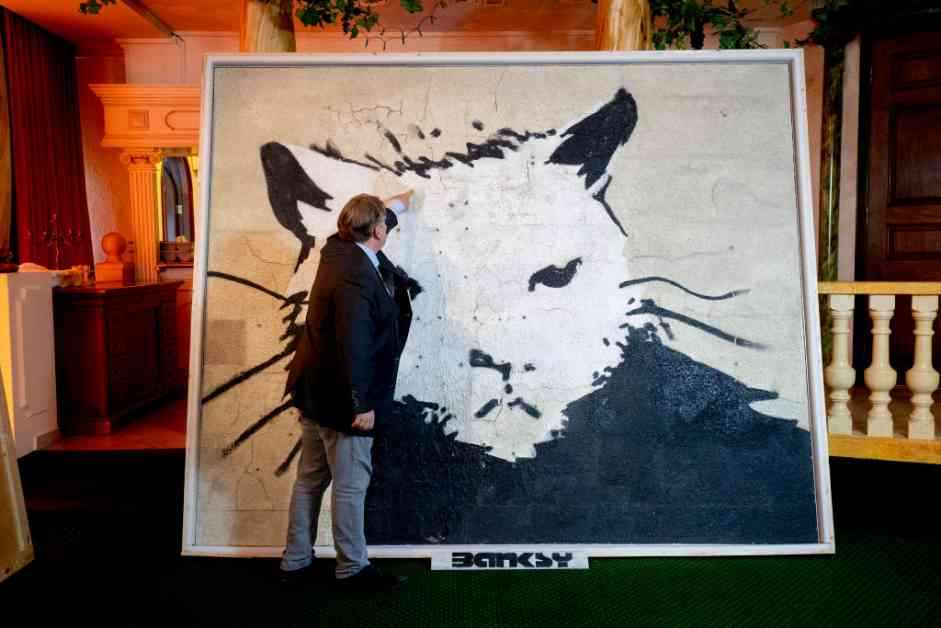Renowned Graffiti Artist Banksy in Legal Battle over Trademark Rights
Banksy, the elusive British street artist known for his thought-provoking and often politically charged artwork, finds himself embroiled in a legal dispute that could have far-reaching implications for his brand. At the center of the controversy is a trademark battle with a greeting card company, Full Colour Black, that threatens to strip Banksy of the rights to his own name.
The dispute, which will be heard in a tribunal at the Intellectual Property Office in April, has garnered significant attention due to the high stakes involved. Andrew Gallagher, the owner of Full Colour Black, alleges that Banksy has not actively used his trademark, opening the door for it to be revoked on the grounds of “non-use.” In response, Banksy maintains that he has indeed utilized the trademark to market his artwork and merchandise.
Legal Showdown: Banksy’s Defense
In a rare public statement, Banksy expressed his frustration with the situation, stating, “A greeting card company is contesting the trademark I hold to my art, and attempting to take custody of my name so they can sell their fake Banksy merchandise legally.” This marks a departure from the artist’s usual mode of communication, which typically involves cryptic messages on social media or through his Pest Control Office.
As the case unfolds, Banksy and his team are expected to make a public appearance to provide evidence in defense of their trademark. This public outing is a departure from the artist’s usual preference for anonymity, adding an extra layer of intrigue to the legal proceedings. Despite the looming court date, the true identity of Banksy remains shrouded in secrecy, leaving many to wonder who will represent the enigmatic artist in the tribunal.
The Business of Banksy: Merchandise and Authenticity
One of the key points of contention in the case is the question of whether Banksy has effectively commercialized his brand through the sale of merchandise. Pest Control Office, the entity responsible for authenticating Banksy’s work, has reportedly sold a variety of items bearing the artist’s signature imagery, including clocks, mugs, T-shirts, and even a handbag.
While Banksy has been vocal in his criticism of commercialism in the past, his decision to market merchandise has raised eyebrows within the art world. Critics argue that by failing to actively use his trademark for commercial purposes, Banksy has left the door open for exploitation by others seeking to capitalize on his brand.
Despite these challenges, Banksy’s defenders maintain that the artist’s unique approach to copyright and branding should not be misconstrued as an invitation for infringement. They argue that the artist’s longstanding ownership of the trademark should be respected, even if it means navigating a complex legal landscape to protect his artistic legacy.
As the legal battle between Banksy and Full Colour Black unfolds, the art world watches with bated breath to see how this landmark case will shape the future of intellectual property rights in the realm of street art. The outcome of the tribunal in April will undoubtedly have far-reaching implications for artists, creators, and businesses alike, underscoring the delicate balance between artistic expression and commercial viability.












